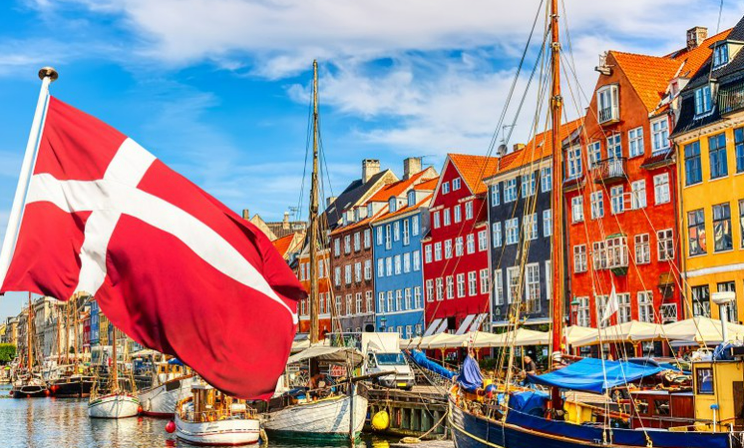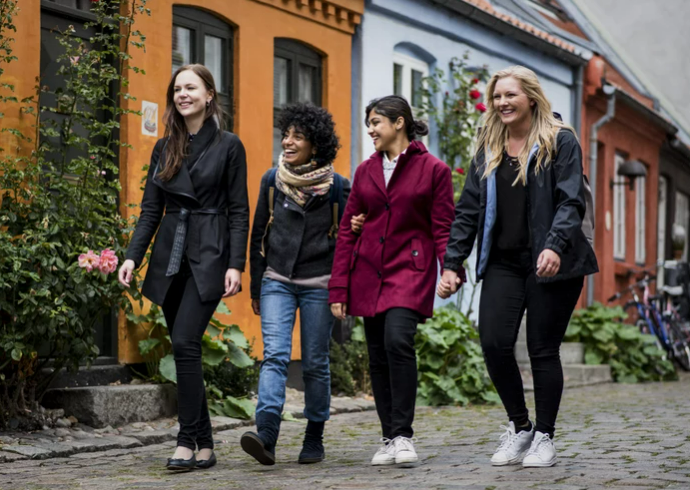Exploring the Secret of the Second Happiest Country on Earth

The UN World Happiness Report recently declared Denmark the world’s second happiest country for the sixth consecutive year, trailing behind Finland, which has held the top spot for seven consecutive years. However, labeling Denmark as merely a runner-up overlooks the unique Danish mindset.
Denmark’s Approach to Happiness
Danish individuals have a knack for reframing situations that might appear less than ideal to others. Described as “realistic optimists” by authors Jessica Joelle Alexander and Iben Dissing Sandahl in their book “The Danish Way of Parenting,” Danes are adept at turning negative situations into positive ones.

For instance, rather than focusing on Denmark’s second-place ranking compared to Finland, the headlines highlight Denmark’s top position in the 60 years and older category. Similarly, the narrower gap between Denmark and Finland’s scores this year is emphasized rather than Finland’s overall supremacy.
Denmark achieved an overall score of 7.586 this year, while Finland’s was marginally higher at 7.804. These scores are primarily derived from the Gallup World Poll, where individuals in 130 countries rate their lives on a scale of zero to 10. The Happiness Report averages these ratings over the past three years, considering factors such as GDP per capita, social support, and freedom.
Meanwhile, the United States dropped out of the top 20 in the report, landing in 23rd place, largely due to decreased satisfaction among individuals aged 30 and younger.
Embracing the Danish Mindset
When asked what makes Finland happier than Denmark, Catarina Lachmund, a senior analyst at Denmark’s Happiness Research Institute, humorously mentioned “saunas.” However, she highlighted minimal differences between the two countries. Both nations boast welfare systems that provide support in times of need, fostering a sense of security and trust in public institutions.
In Denmark, individuals can receive unemployment benefits if they lose their job, access free healthcare without worrying about costs, and enjoy generous parental leave policies. Education, including university, is free, with students receiving a monthly state grant for living expenses. The strong presence of social housing, abortion rights, and powerful unions further contribute to Denmark’s societal cohesion.
This confidence in public institutions extends to everyday life, with unlocked nursery doors and open school playgrounds reflecting a deep sense of trust within Danish society. Family plays a central role, with concepts like “hygge” and “fælles” emphasizing the importance of togetherness and community bonding.
Ultimately, Denmark’s second-place ranking in the Happiness Report underscores the nation’s unique approach to well-being and its commitment to fostering a supportive and inclusive society.
These are remarkable, genuine Danish sentiments, but they don’t imply that Danes feel they should secure the top spot in the World Happiness Report — not even if they possessed 3 million saunas. “I’m very pleased not to be number one; it means we’re not all meant to be happy,” remarked one relative on the Danish side of my family, showcasing the classic dry humor that’s a national trait.
Here’s another aspect to understand about Danes: They are profoundly and famously self-deprecating. They steadfastly adhere to an unwritten social code known as Jante Law — a concept prevalent throughout Scandinavia — which discourages individuals from boasting about themselves. Understatement, modesty, and a degree of conformity are lauded. This ethos extends to national aspirations as well. Danes don’t require a ranking to validate their well-being; they already know they’re doing well. Why flaunt their success to their neighbors?
This brings me back to the World Happiness Report and Denmark’s consistent position as runner-up to Finland. While Denmark was named the happiest country in 2012, 2013, and 2016 — and may reclaim the top spot someday — for now, let me introduce you to another quintessentially Danish concept.
It revolves around the word “pyt” (pronounced “pid”), which lexicographers selected a few years ago as Denmark’s favorite word. A rough English equivalent might be “never mind, stuff happens,” often accompanied by a slight shrug of the shoulders and a faint smile. It’s somewhat akin to the notion expressed in English as “water off a duck’s back.”
This attitude allows Danes to accept situations like coming in second place without becoming overly distressed about it.